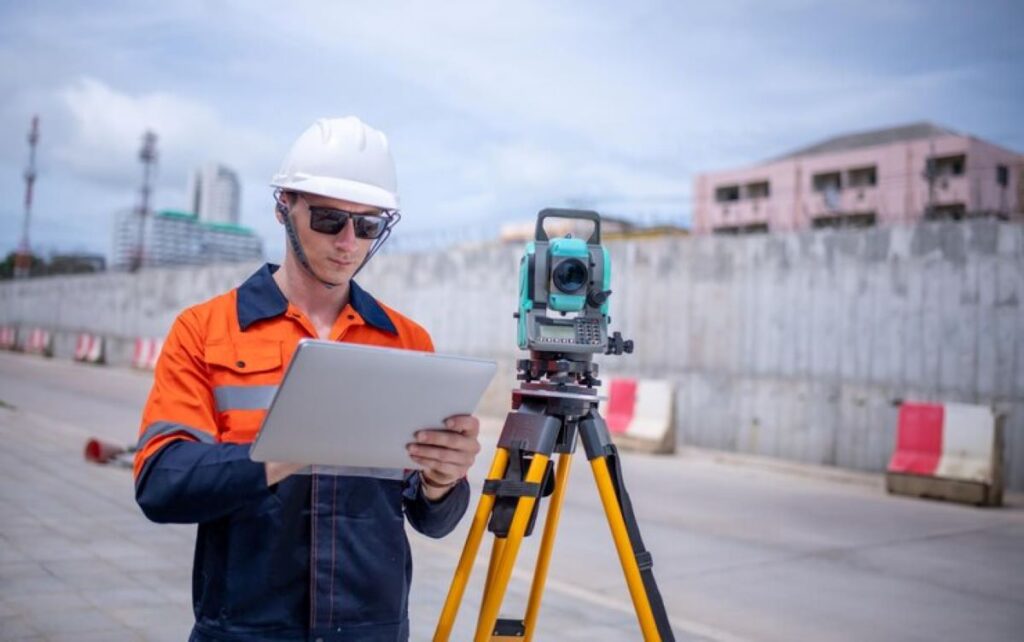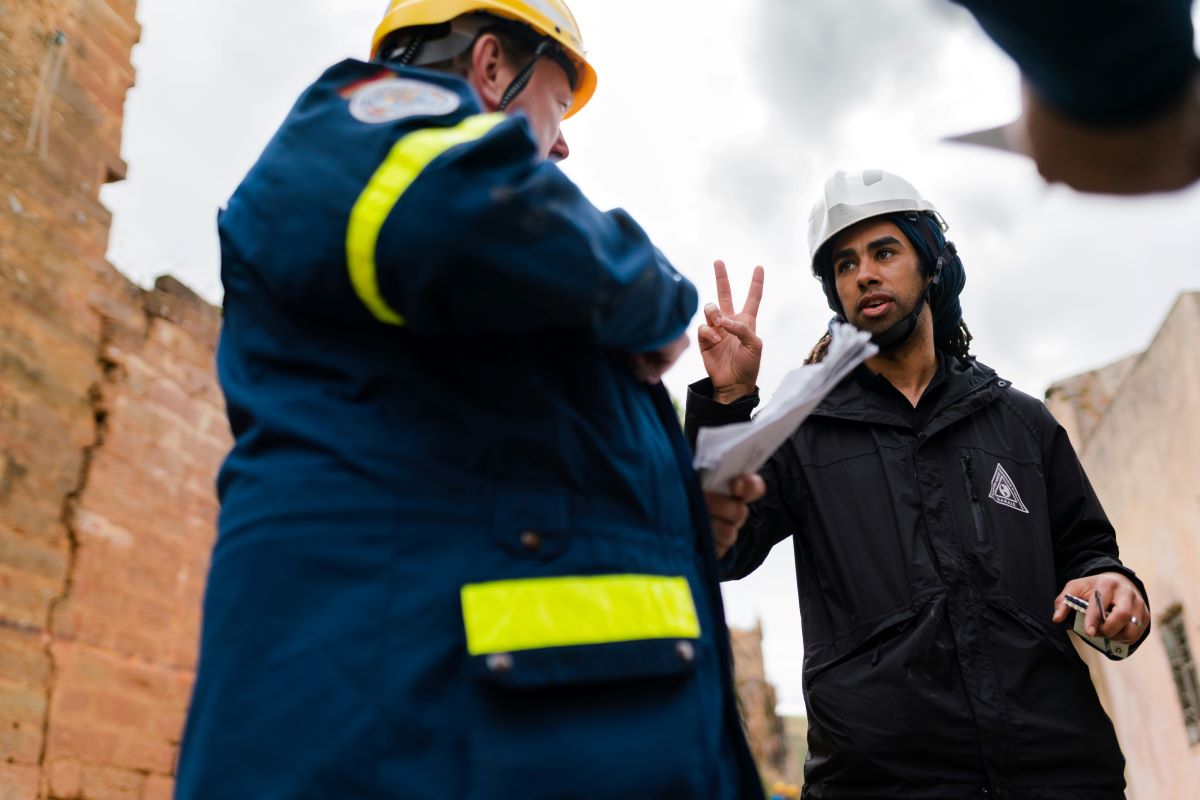In the realm of construction and land development, the role of engineering surveyors is both critical and multifaceted. These professionals provide the essential groundwork that guarantees land assessments are precise, leading to successful project outcomes. In this article, we will explore the pivotal duties of engineering surveyors, the methodologies they employ, the challenges they encounter, and the significant impact their work has on construction projects.
Understanding the role of engineering surveyors in land assessments
Engineering surveyors act as the eyes and ears of the construction industry. They meticulously measure and analyse land to provide accurate data that informs various projects. From laying the groundwork for new developments to determining property boundaries, their expertise is indispensable.
The importance of accurate land assessments
Accurate land assessments are paramount. Without precise measurements, even the most ambitious construction efforts can falter. Poor assessments can lead to costly errors, legal issues, and safety problems that not only impede progress but can also result in significant financial losses.
Key responsibilities of engineering surveyors
The responsibilities of engineering surveyors are diverse. They conduct boundary surveys, topographic surveys, and construction staking, to name a few. These tasks require not just technical skill, but also an understanding of the legal implications of land use.
Furthermore, they collaborate with architects and engineers to create detailed maps that guide project implementation. This collaboration ensures that all stakeholders have a clear picture of the project’s foundation. Their precision is crucial in establishing the parameters within which construction will occur.
In addition to their surveying duties, engineering surveyors often utilise advanced technology such as GPS and laser scanning to enhance the accuracy of their measurements. These tools allow for the collection of data that is not only precise but also efficient, enabling projects to move forward without unnecessary delays. The integration of technology in surveying practices has revolutionised the industry, allowing surveyors to provide real-time data that can be crucial during the various phases of construction.
Moreover, engineering surveyors are also tasked with assessing the environmental impact of proposed developments. This aspect of their role involves evaluating how construction activities might affect the surrounding landscape and ecosystems. By conducting thorough assessments, they help ensure that projects comply with environmental regulations, thereby safeguarding natural resources and promoting sustainable development practices. Their work plays a vital role in balancing the needs of construction with the preservation of the environment, making them key players in the quest for responsible land use.
The process of engineering surveying for land assessments
Engineering surveying is a systematic process that involves numerous stages, each designed to guarantee accuracy and effectiveness. Understanding this process helps clarify how engineering surveyors achieve their high standards of precision.
Initial site analysis and data collection
The first step in engineering surveying is the initial site analysis. Surveyors visit the land to collect data on its topography and existing structures. This phase involves measuring distances, angles, and elevations using advanced equipment.
Data collection is meticulous and serves as the foundation for all subsequent surveying tasks. The quality of the initial data will directly affect the accuracy of the entire project, making it a critical focus for engineering surveyors.

Use of technology in engineering surveying
Modern engineering surveying leans heavily on technology. Instruments such as total stations, GPS systems, and laser scanning devices enhance accuracy and efficiency. These tools enable surveyors to gather data quickly, which can then be processed to create intricate maps and models.
Advancements in software also play a vital role in data interpretation. Surveyors often employ Geographic Information Systems (GIS) to analyse the gathered data, allowing for sophisticated modelling and simulation of land use.
Interpreting survey data for land assessments
Once the data has been collected, the interpretation phase begins. Surveyors analyse the information to identify any potential issues that may arise during construction. They create detailed reports that outline the findings, which are crucial for the decision-making process of engineers and constructors.
This stage is critical, as misinterpretations can lead to substantial setbacks. Therefore, engineering surveyors must possess not just technical skills but also analytical thinking capabilities to ensure that all data is evaluated correctly.
Challenges faced by engineering surveyors in ensuring accuracy
Despite their expertise, engineering surveyors often face challenges that can compromise the accuracy of their assessments. Understanding these challenges provides insight into their essential role.
Dealing with complex land structures
One of the primary challenges is navigating complex land structures. Varied terrains, such as slopes and wetlands, require unique surveying methods and approaches. Adapting to these complexities is vital for ensuring accurate assessments.
Surveyors must often employ innovative techniques and leverage their experience to overcome these landscape-related hurdles. This adaptability is a hallmark of a skilled engineering surveyor.
Overcoming environmental conditions
Environmental conditions can also present significant challenges. Factors such as weather conditions, vegetation, and changing landscapes can hinder data collection efforts.
Surveyors must be prepared to tackle these issues, sometimes delaying work or re-evaluating their techniques in response to adverse conditions. Their ability to remain flexible ensures that the surveying process remains aligned with timelines and budgets.
Ensuring precision in data collection and interpretation
Finally, the need for precision in data collection cannot be overstated. The slightest error in measurement can cascade into massive complications down the line.
To mitigate these risks, engineering surveyors implement rigorous checks and balances, including cross-referencing data with existing records to confirm accuracy.

The impact of accurate land assessments on construction projects
The work of engineering surveyors ultimately influences a range of construction project outcomes, from design to financial considerations. Understanding this impact highlights the importance of their role in the industry.
Influence on project planning and design
Accurate land assessments fundamentally shape project planning and design. When surveyors provide reliable data, architects and engineers can develop designs that are not only efficient but also compliant with local regulations and environmental considerations.
The foundational data enables teams to identify potential issues before construction begins, facilitating smoother project execution and optimising resource allocation.
Role in cost estimation and budgeting
Cost estimation is another critical aspect influenced by accurate assessments. When surveyors provide reliable measurements, the estimations of materials, labour, and time are more precise. This reliability helps prevent budget overruns, a common pitfall in construction.
Proper budget management is vital for the success of any project, and precise land assessments contribute significantly to cost-effectiveness. Learn more about expert engineering surveyors in property planning and design.
Contribution to sustainable construction practices
Lastly, accurate land assessments contribute to sustainable construction practices. By meticulously evaluating land use and available resources, engineering surveyors help ensure that projects are designed with environmental conservation in mind.
This commitment to sustainability not only reflects positively on the project but also aligns with increasing awareness and adherence to eco-friendly practices in the construction industry. Surveyors play a vital role in paving the way for a sustainable future.
In conclusion, the contributions of engineering surveyors to the construction industry cannot be exaggerated. Their expertise in land assessments ensures that projects are grounded in accuracy, paving the way for successful and sustainable developments.
